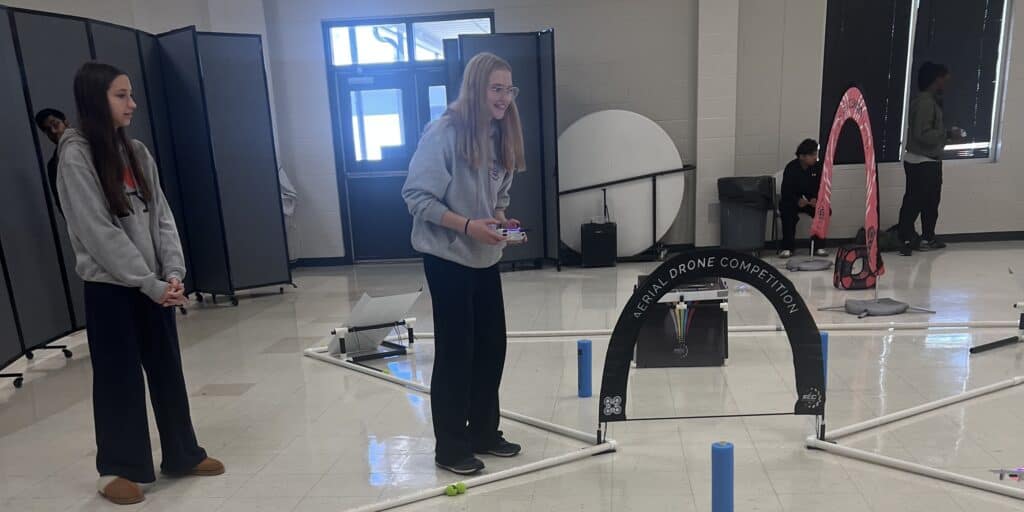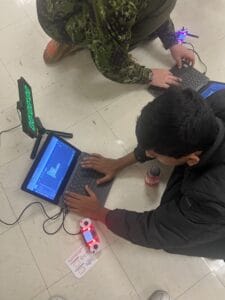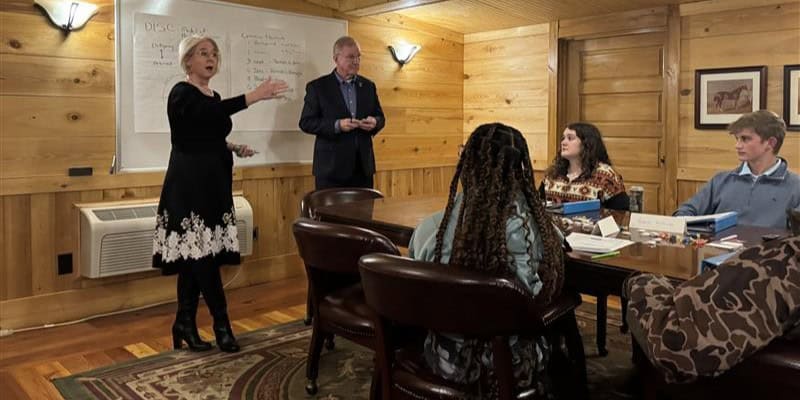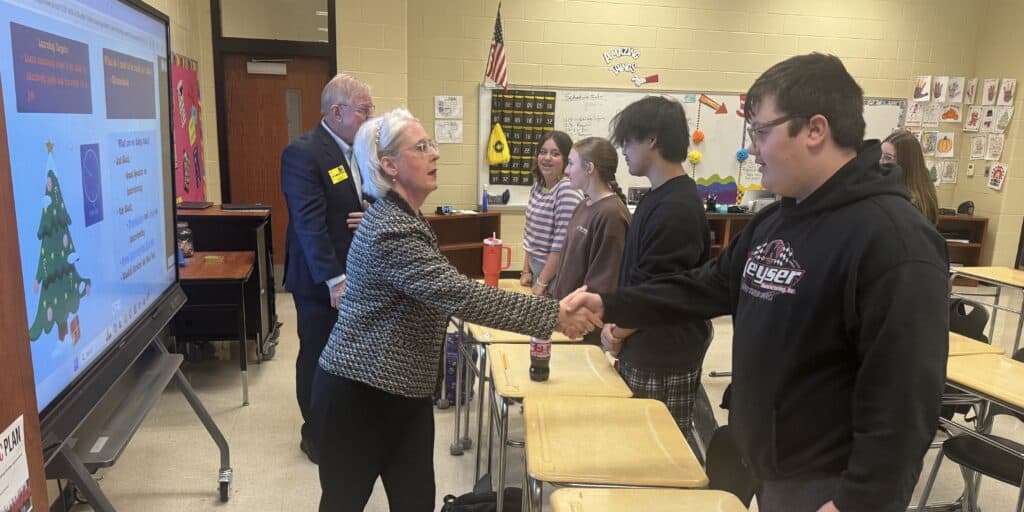Taking Flight: HireSmart Grant Helps Cedar Shoals JROTC Students Build Discipline and Drone Skills

Cedar Shoals High School JROTC instructors see the success stories.
There’s Zachary Van Hessen, who entered high school out of shape, but joined the Raider team and transformed himself into a fit athlete, earning a full scholarship to West Point. There’s Logan Rounsaville who worked full-time while attending school, living in an apartment with no family support. He struggled with impulse control, but JROTC’s structure, mentorship, and discipline helped him find his pathway and today he’s working his way up in the Air Force.
These stories aren’t anomalies at Cedar Shoals High School in Athens, Georgia. They’re evidence of what the school’s JROTC instructors have always understood: when you give students structure, mentorship, and meaningful opportunities, they grow. The program serves roughly 250 to 300 cadets annually, offering drill team, Raider team, rifle team, academic competition through JLAB, and archery. Each activity is designed around the same principle: every student has a pathway to develop and mature, not just athletes or traditional high achievers.
And Cedar Shoals’ JROTC program produces something employers desperately want: soft skills. Employers all want discipline, respect, punctuality, teamwork, the ability to show up and do what’s asked of you.
“Everything we teach is about soft skills, how they interact with each other, showing discipline, being punctual,” said Major Carlie Williams Jr., who leads the JROTC program. “That’s 90 percent of what we do here.”
But soft skills alone don’t guarantee opportunity. Students also need marketable abilities that open doors to real careers. That’s where HireSmart Cares stepped in. The nonprofit, founded by entrepreneurs Mark and Anne Lackey to provide job-ready skills programs for K-12 students, awarded Cedar Shoals a $4,725 grant to establish something the school’s JROTC leadership saw emerging from their students: genuine and passionate interest in drones.
The Intersection of Interest and Opportunity 
At summer camp last year, Cedar Shoals students got to work with HireSmart drone partner First Sergeant Francisco Ramey and get a taste of operating drones. They were hooked. Their excitement led JROTC leadership to pursue a drone program — even though neither Major Williams nor Cedar drone co-coaches, Master Sergeant David Croft and Sergeant First Class Ricky Keller, had extensive drone expertise.
“We had a lot of kids from Cedar Shoals who were really, really interested and excited about drones,” said Williams. “So we talked to First Sergeant Ramey, and we immediately started the program. The kids were excited about it.”
There are currently about 15 students committed to the drone program, with the team practicing twice weekly. Williams said the HireSmart grant has a huge impact on the kids.
“With government funding being what it is right now — we’re in the middle of uncertainty with budgets,” said Williams. “But having the ability to get the equipment we need through HireSmart Cares is phenomenal. Schools don’t necessarily have the funds to provide these kinds of opportunities.”
The equipment list reflects serious investment: multiple DJI drones, CoDrone EDU units, PVC piping for building flight courses, and backup equipment for maintenance and training — resources that would be difficult for Cedar Shoals to secure without HireSmart support.
 Soft Skills with a View to the Future
Soft Skills with a View to the Future
What makes the drone program fit so naturally into JROTC’s mission isn’t just that drones are cool or that students are interested. It’s that flying drones teaches the same foundational skills employers consistently demand.
The drone program reinforces this. Students must demonstrate respect for equipment, precision in following procedures, collaboration in team-based missions, and self-discipline in mastery. When students see that these skills directly translate to success in a real field — commercial drone piloting, agricultural mapping, real estate photography — the abstract becomes concrete.
Croft and Keller plan for Cedar students to participate in drone competitions this year. Even if Cedar Shoals doesn’t place highly in early competitions, the instructors see value in the exposure.
And when eighth graders visit Cedar Shoals for orientation, the drone team plans to demonstrate the program. For students who might not connect with traditional sports or military structure, watching their peers pilot drones will open a door to belonging and possibility.
Meanwhile, the drone industry is growing. The Federal Aviation Administration projects significant expansion in commercial drone operations. Part 107 drone pilot certification, which Cedar Shoals students are working toward, opens doors to careers in agriculture, surveying, construction, emergency response, and more.
But the value goes deeper than a single career path. What Cedar Shoals’ JROTC program consistently delivers is something more fundamental: young people who understand that discipline and teamwork produce results, that challenges can be overcome through persistence, and that they have the capability to succeed. These are traits needed in any successful career.
Zachary Van Hessen discovered that through the Raider team. Logan Rounsaville discovered it through structure and mentorship. And right now, a group of Cedar JROTC students are discovering it through drones.
“When you give them structure, when you give them somebody who sees them and believes in them, things start going a lot better,” said Croft.
HireSmart Cares is a 501(c)(3) nonprofit organization focused on helping students develop career-ready skills through grants, scholarships, and workforce development initiatives. To learn more about HireSmart Cares, visit hiresmartcares.org. Educators with innovative approaches to preparing students for industry-relevant skills can apply for a HireSmart Cares grant at hiresmartcares.org/ideas-application.



